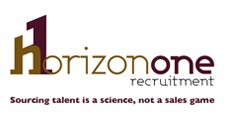
In a move that defies logic, the ACT Government is about to explore how much damage can be done to an employer brand by testing the age old principle of “you pay peanuts – you’re going to get monkeys.” In a ‘forced choice’ procurement exercise described by some in the industry as a ‘process trap’, the ACT Government have unilaterally set labour hire margins at 7.05% effectively forcing those that rely on ACT Government business to either sign up, or risk losing their contractors to other firms on the panel.
A margin of 7.05% represents less than half that paid by Commonwealth Government panel arrangements, which are already cut price rates.
For a Government crowing about how strongly they support small business, how many SME’s could survive a Government imposed >50% drop in profitability?
7.05% puts professional recruitment services in the same bucket margin-wise as those who supply standard transactional products and services. Given the complexity and challenges involved in sourcing highly skilled contractors, this doesn’t make any commercial sense.
Canberra’s recruitment community is stunned that our local Government would make a unilateral move across most of Canberra’s major labour hire categories. Our region consistently ranks above all other States and Territories on candidate shortages in sectors like ICT, Accounting and Finance, and other specialist professions.
The number days to fill an average ICT contract across Australia is 25 days, whilst in Canberra it takes on average 60 days!!
This is why implementing a scheme like this in the ACT market vs the NSW market is so different. In addition to this uniquely Canberra challenge, attracting talented contractors to the ACT Government is already a challenging task. By compounding this challenge and making it unprofitable for recruiting firms to supply staff, surely the ACT Government will damage their already limited supply of talented professionals?
I will tackle concerns about the ACT Governments bullish approach to the procurement process in a future blog article. I will say for now however that this represents another very clear example of how the ACT Government pays lip service to support local SME’s, whilst behaving completely differently when it comes to managing their own procurement. For another recent example, have a read through recent article by Tim Benson from B2B magazine.
Let me spell out in plain and simple terms how this move will impact the ACT Government’s ability to attract talented contract personnel:
Opportunity cost will drive down quality
Like it or not, experienced recruiters make decisions daily on how they prioritise the application of their talent network. Where recruiters send their best people is a multi-faceted decision, but one of the key factors considered is around the client paying appropriate fees.
The opportunity cost of doing business with the ACT Government through this panel is so extraordinarily high, recruiters will simply avoid referring their best talent. Quality referrals will dry up rapidly.
Existing contractors will be placed elsewhere
Local recruitment firms are already looking at reprioritising their existing ACT Government contractors to employers paying reasonable rates. Whilst nobody will be being overt about this, it is simple economics at work.
Pay peanuts, get monkeys
Having spoken to a number of experienced recruiters that managed teams on the NSW Government equivalent of this scheme, it sounds as though a number of poor outcomes will prevail when you stiff a recruitment company on margins. These recruitment companies would allocate their lowest performing consultants (read cheapest), and put them in a corner of the engine room where they battle for the bottom rung candidates and fire them at the client till something sticks.
Experienced recruiters, those with the strongest talent networks, avoid engaging with low fee panel work like the plague.
Reputational risk, could this be brand suicide?
As mentioned above, the ACT Government already have distinct challenges when competing with the likes of Federal Government for talent. It is a shame, there are some great jobs in the ACT Government and we often hear positive stories from contractors who enjoy the proximity to ‘real outcomes’ in their work. But in a market driven by recruitment companies, where recruitment consultants are the critical interface for communicating employer brand, what will happen when the middle man feels jilted? That’s right, there will be a ‘pong in the air’ likely to cause a lasting impact on the ACT Government’s employer brand, and this may also impact permanent and non-ongoing talent attraction capability.
In a notoriously candidate short market, talented contractors are highly sensitive to bad press and will favour offers from other employers.
Evidence from recent history predicts pain ahead
Below are two examples where similar approaches have run into trouble recently:
Queensland government
The Queensland Government went to market with a similar model to ACT and NSW Governments, not with a fixed bargain basement margin, but with a model that failed to appropriately consider how the sector operates. Combined with a messy implementation and a lack of communication with suppliers, the panel quickly ran into trouble. The supply of quality talent to QLD Government reduced markedly. In this instance, through engaging with a strategic working group including industry bodies and improving the process and information sharing, the panel is operating positively and suppliers negotiate commercial terms they can afford to work to.
Department of health and ageing
At the end of 2011, just as Canberra was starting to experience its own little GFC (i.e. Government cut spending, redundancies, recruitment freeze), the Department of Health picked a far more intelligent time to try a low cost panel for contract recruitment. Trialling a fixed rate model for non-ongoing staff at around 60% of normal rates, these were the results:
- Many of the agencies on the panel reduced their level of work with Health, easily transferring their commitment to other clients who were willing to pay proper fees.
- The panel leaked like a sieve. If hiring managers could demonstrate ‘they tried’ to use the panel, they were able to agree on new commercial rates with anyone they chose.
- Investment in short term personnel through consulting firm panels increased dramatically, at much higher premiums (typically 30%).
- Recruitment agencies avoided sending their best talent, and experienced recruiters avoided the Health panel work. Some of the large multi-national firms eventually setup specialist health panel teams with junior recruiters tasked with flicking CV’s until something stuck.
- Only 1-2 other Commonwealth agencies ‘piggy-backed’ the arrangement, with at least one Department quickly backing out of their commitment once they saw how the panel operated.
The margins are prohibitive for small businesses
Companies that are able to exist on tiny margins are typically built for high volume, low value-add labour hire supply. Typically these margins are seen in hospitality, mining and blue collar industries, and construction recruitment where entire teams are hired at once, and often for sustained periods.
Quality focussed, value-add recruitment companies simply cannot turn a profit on these rates unless there is a restricted panel on offer (there isn’t), and a guaranteed volume of work well above what is on offer from the ACT Government.
False economies
We all know the ACT Government have a cash problem. But will taking the lion’s share of margin away from a group of suppliers like this really save money?
Advice from a number of very experienced consultant contractors in the commercial procurement space is this approach creates a false economy.
The driving down of quality by panels like these will mean it will be harder for ACT Government agencies to ‘do it first time, and do it right’.
Lower quality contractors that deliver a poor service will lead to more failed hires, and value for money quickly disappears. To replace someone after the first hire fails to deliver incurs more cost, and often at an inflated price.
Where to from here?
Currently, it is optional for ACT Government agencies to sign up to this agreement. We would recommend any Government agency considering signing on should think very carefully about what this means for their employer brand, and what hidden costs are involved in the change.
However, signing on may become mandatory in the near future. Therefore now is the time for some real public debate. Any form of conversation about this enormous change has so far been strategically avoided by the approach taken with the procurement process for this panel.
Whilst the recruitment industry bodies APSCo and the RCSA are working hard to engage the Government in some eleventh hour lobbying, we are interested to hear from employers, contractors, and all other interested parties.
I would also call on recruitment company leaders to consider very seriously the move of signing up to this agreement, what that might mean for your business and the industry. Also, if you are unhappy to be treated this way contact your local member, contact ACT Chief Ministers and ACT Procurement, and let them know that you won’t stand for this level of disrespect.
As a recruitment company that seeks to add value to local employers through the quality of our services, and as an SME who do a significant amount of business with ACT Government, HorizonOne won’t be signing on.
Please contact Simon Cox at HorizonOne Recruitment
on 02 6108 4878 or [email protected]
Level 1, 27 Torrens Street, Braddon
www.horizonone.com.au

